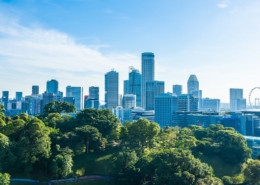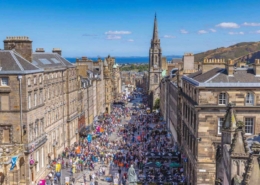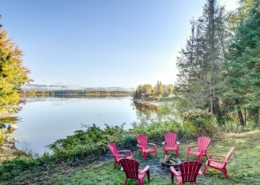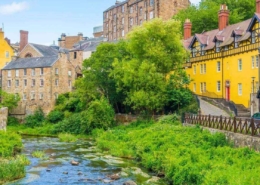Rome, Italy, has faced significant legal issues concerning short-term rentals, including those listed on platforms like Airbnb. The city, like many other popular tourist destinations, has experienced a surge in short-term rental listings, leading to concerns about its impact on the local housing market, community, and tourism industry.
One of the main legal challenges in Rome has been the enforcement of regulations regarding short-term rentals. Italian law requires hosts to obtain a license for touristic use of their property. However, many short-term rental listings on platforms like Airbnb were found to be operating without the necessary permits, leading to accusations of unfair competition with traditional accommodations and potentially contributing to housing shortages.
In response to these concerns, Rome has taken measures to regulate and control short-term rentals. The city authorities have imposed strict penalties on unlicensed rentals and have carried out inspections to identify and shut down illegal operations. Hosts found to be operating without a license face hefty fines, and their listings can be removed from platforms.
Additionally, Rome has established specific zones where short-term rentals are prohibited to preserve the residential character of certain neighborhoods and prevent overtourism.
The legal landscape for short-term rentals in Rome continues to evolve as the city seeks to balance the benefits of tourism with the well-being of its residents and the protection of its cultural heritage. Authorities have engaged in ongoing discussions with industry stakeholders and residents to find sustainable solutions.
Hosts and guests should be aware of the current regulations and comply with the requirements to avoid potential legal issues. It is crucial to verify the most up-to-date information from the relevant authorities or consult legal professionals to ensure compliance with the current rules and regulations for short-term rentals in Rome. As the legal landscape changes, hosts and guests must stay informed to maintain responsible and compliant short-term rental practices in the city.
More about Airbnb regulations read here.
Airbnb hosts can rent out entire properties, private or shared rooms.
- 22 313 – Airbnb listings in total
- 16 492 (74%) – entire properties
- 5 711 (26%) – private rooms
- 110 (0.5%) – shared rooms
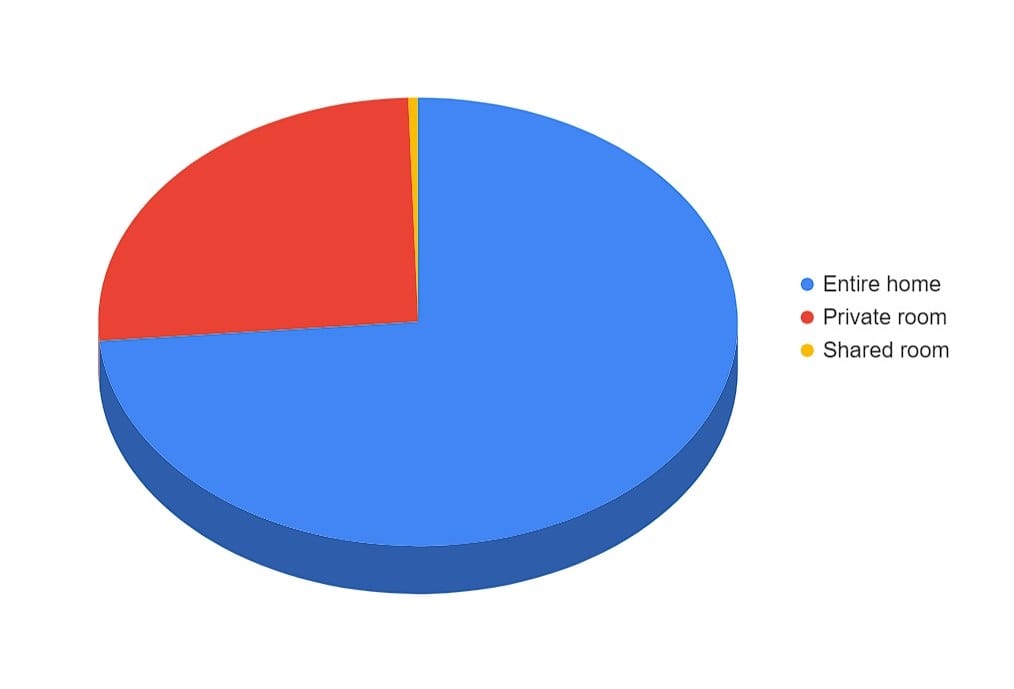
16 492 (74%) – entire properties
5 711 (26%) – private rooms
110 (0.5%) – shared rooms
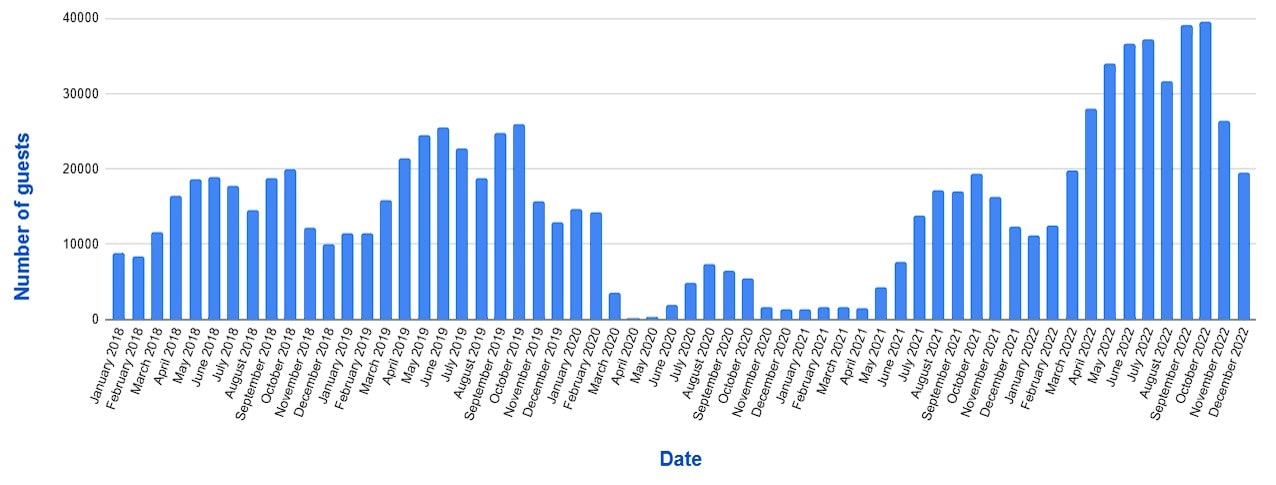
Airbnb guests may leave a review after their stay, and these can be used to estimate Airbnb guests activity. However not all guests leave a review, so the actual activity could be higher.
- $153 – average daily rate
- 93% – occupancy rate
- $3220 – revenue.
When you assess the Airbnb market in Montreal, you’ll notice that there are some hosts who have multiple listings and some that have single listings, just like everywhere else in the world. Also, owners can list their property on 1 or more platforms.
- 76% – listed on Airbnb
- 8% – listed on Vrbo
- 16% – listed on both.
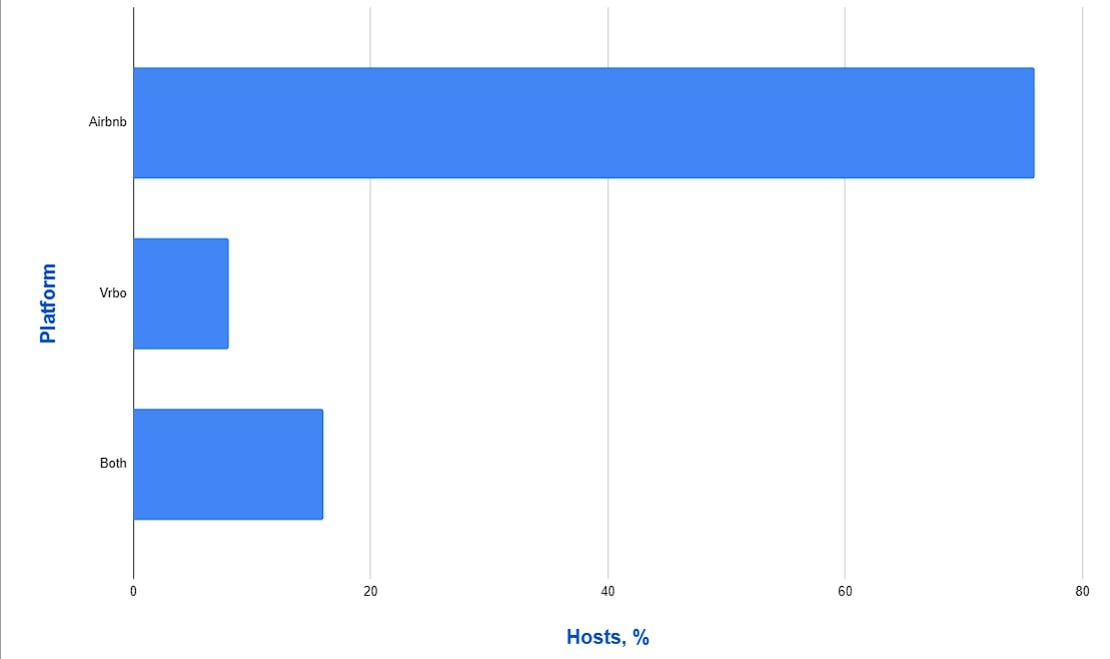
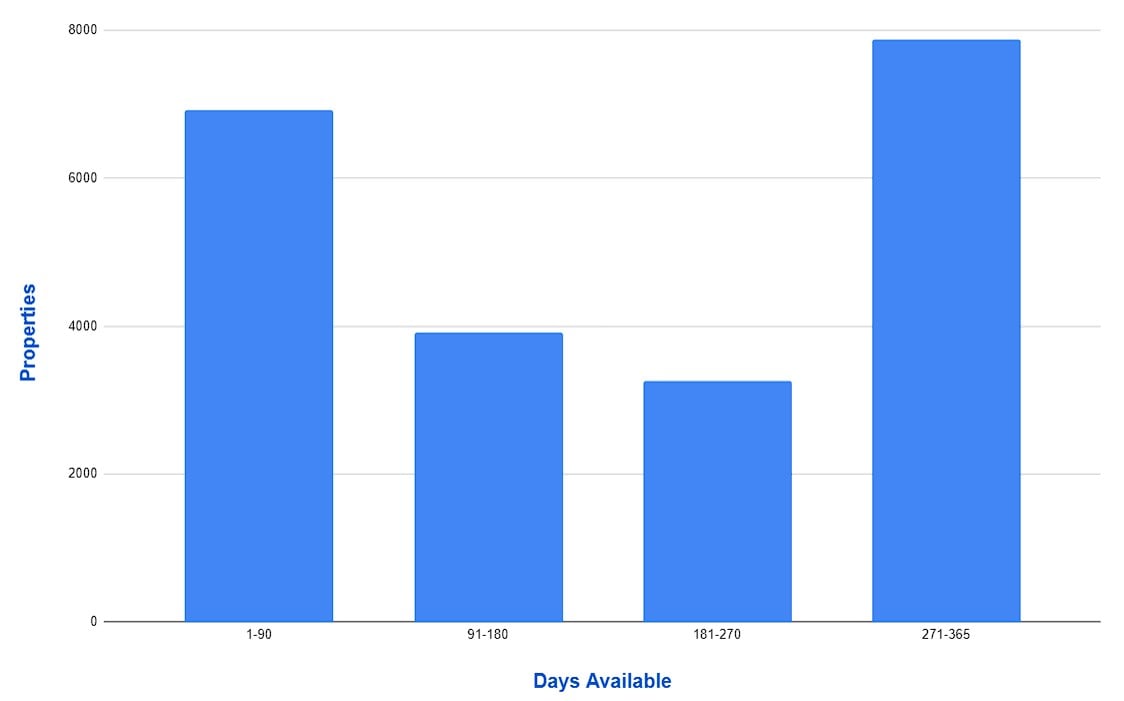
Airbnb hosts have full freedom when it comes to selecting how available their property or rooms are. For instance, by utilizing the calendar tool, a host can set their property to be available for just one week in a year. Alternatively, another example is a host setting their rooms to be available for 11-months out of the 12.
- Available
- 1-90
- 91-180
- 181-270
- 271-365
- Properties
- 6919
- 3911
- 3260
- 7876
- %
- 31
- 18
- 15
- 36

